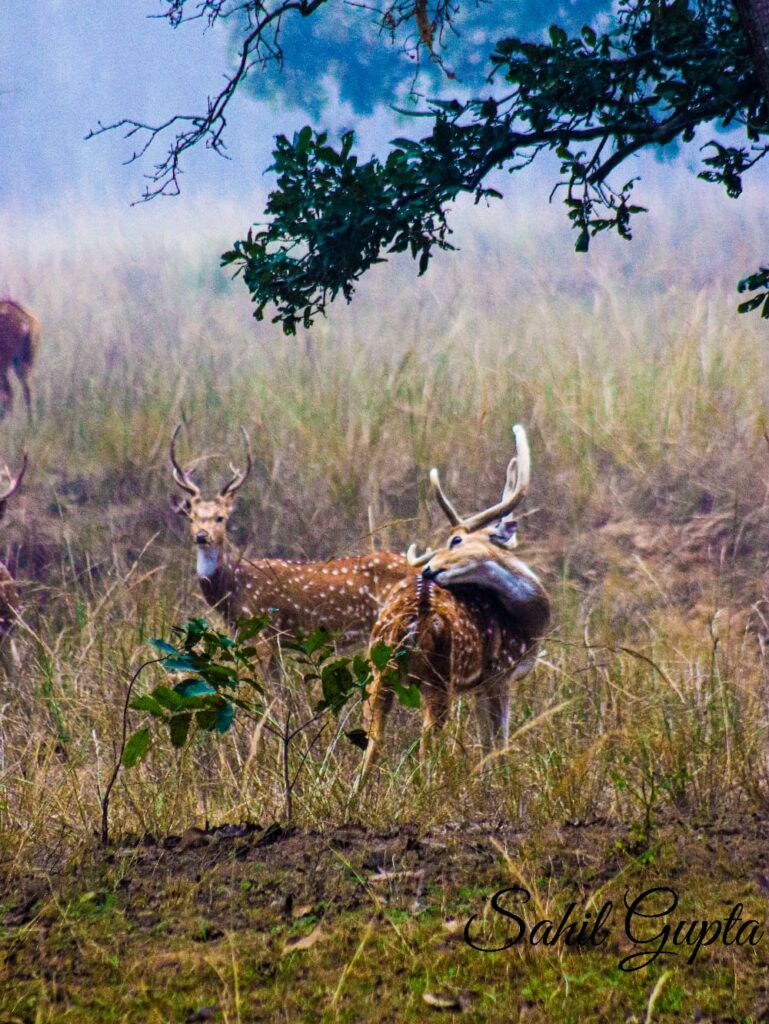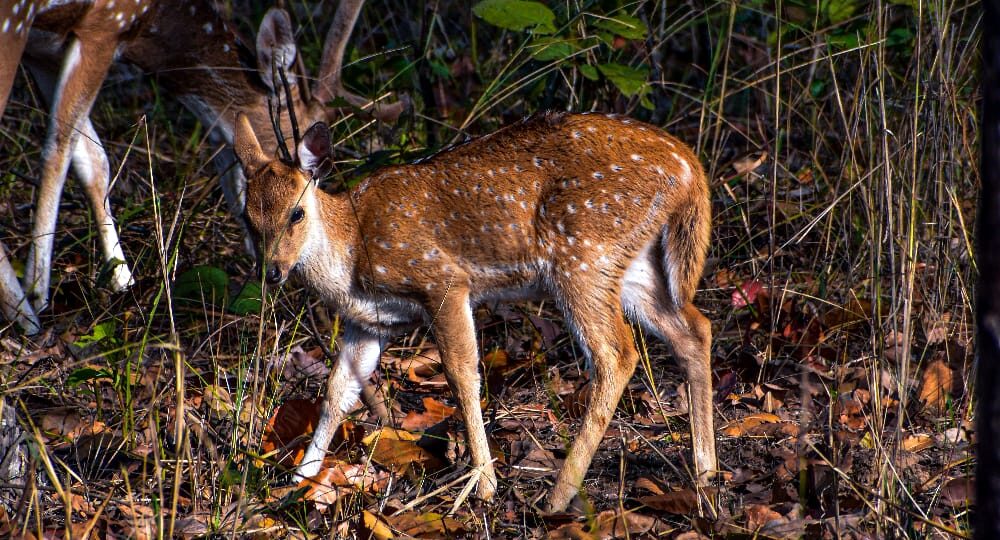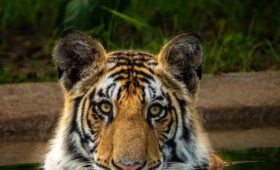As nature enthusiasts and travelers, we often find ourselves exploring the breathtaking beauty of wildlife areas, like the splendid Tiger Reserve Or Wildlife Sanctuaries.These journeys bring us closer to the wonders of the animal kingdom, offering us a glimpse into the lives of the majestic creatures that inhabit these lands. However, it is crucial for us to tread lightly and responsibly, ensuring we do not disrupt the delicate balance of nature.
Recently, during my own drive towards Bandhavgarh, I witnessed an incident that prompted me to reflect on the importance of responsible tourism. A car had stopped in a ‘no-stopping’ zone within the grassland, and its occupants were feeding a spotted deer with chips. While their intentions were likely not malicious, it brought to light the need for greater awareness about the impact of such actions on the wildlife habitat.

Why We Should Refrain from Feeding Wildlife: Feeding wildlife, even with seemingly harmless items like chips, can have unintended consequences on the animals and their environment. Here are a few reasons why refraining from feeding wildlife is essential:
- Nutritional Imbalance: Wild animals have specific dietary needs, and introducing human food into their diet can lead to nutritional imbalances. This can adversely affect their health and well-being.
- Dependency on Humans: When animals become accustomed to receiving food from humans, they may become dependent on these handouts. This can disrupt their natural foraging behaviors, making it challenging for them to survive without human assistance.
- Health Risks: Human food may not be suitable for the digestive systems of wild animals, leading to various health issues. Additionally, the food itself might be harmful, containing substances that can be toxic to the wildlife.
- Altered Behavior: Regular interaction with humans and reliance on handouts can alter the natural behaviors of wildlife. Animals may become more accustomed to human presence, potentially putting both humans and animals at risk.
- Disturbance to Ecosystem: Introducing foreign substances into the wildlife habitat can disturb the delicate balance of the ecosystem. This interference may have cascading effects on other species, disrupting their natural behaviors and interactions.
It is our responsibility as visitors to these remarkable wildlife areas to be mindful of our actions. While the desire to connect with nature and its inhabitants is natural, it is crucial to prioritize the well-being and conservation of the wildlife we encounter. Let us pledge to respect the habitats of these incredible creatures, ensuring that our presence enhances, rather than harms, the natural beauty that makes these areas so special. Together, we can contribute to the preservation of our natural treasures for generations to come.




